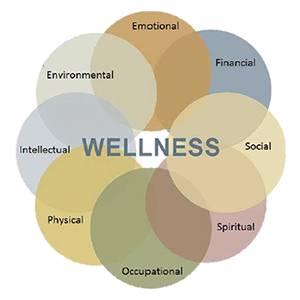Frequently Asked Questions
What is a Peer Wellness Coach?
Peer Wellness Coaches (PWCs) with the My Health, My Choice, My Life (MHMCML) initiative promote healthier behaviors for Tennesseans with Mental Health and/or Substance Use Disorder conditions. They do this by facilitating holistic, evidence-based curriculums such as Chronic Disease, Diabetes, and Chronic Pain Self-Management Workshops, WHAM, NEW-R, and Tobacco Free Workshops, and one-on-one Peer Wellness Coaching to help participants achieve their wellness goals based around the Eight Dimensions of Wellness.
What are the Eight Dimensions of Wellness?
Wellness encompasses eight mutually interdependent dimensions: physical, intellectual, emotional, social, spiritual, occupational, financial, and environmental. By working with participants on their health goals and with the complexity of what complete wellness means in mind, PWCs are able to help facilitate lasting, positive change that improves participants’ lives.
How are Peer Wellness Coaches different from dietitians?
A dietitian is a board-certified food and expert nutrition. They are highly educated in the field of nutrition and the science of food and its impact on human health. This allows them to operate at a clinical level and even diagnose patients based on their expert assessment.
Peer Wellness coaches are Certified Peer Recovery Specialists (CPRS) with the state of Tennessee Department of Mental Health and Substance Abuse Services. A CPRS is a person who has lived experience of a mental illness, substance use disorder, or co-occurring disorder, who has made the journey from illness to wellness, and who has been trained and certified to help others. Using this training and relying on evidence-based information to work with participants, PWCs provide a unique and supportive resource to people who are working toward various health goals. Although PWC do not and cannot diagnose participants, many work within clinical environments and often work alongside healthcare providers as peer support resources.
What does evidence-based mean?
MHMCML relies on curriculums and facilitation approaches based on the most up-to-date research from peer-reviewed sources, such as universities, clinical and behavioral healthcare providers, and governmental research agencies. For example, the United States Department of Agriculture, based on Dietary Guidelines for Americans, created MyPlate, which is a common resource utilized by Peer Wellness Coaches. My Health, My Choice, My Life’s commitment to holding all disseminated information to this standard ensures that participants receive high-quality, accurate information as they work towards their health goals.
